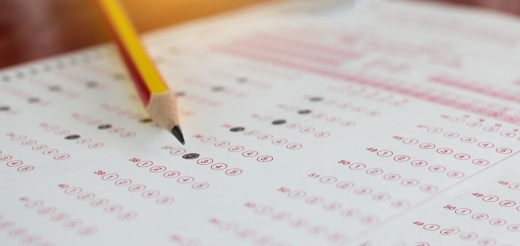Editor's note: This story was updated to include comments from Fort Bend ISD.
Spring 2021 standardized test results released in late June by the Texas Education Agency show decreases in the percentage of Fort Bend ISD students approaching grade level in nearly every subject area when compared with test results from spring 2019.
Statewide, there was a 4% decline in the percentage of students who are reading at or above grade level and a 15% decline in the percentage of Texas students that are doing math at or above grade level.
There were also decreases in science and social studies State of Texas Assessments of Academic Readiness test scores as well as Algebra I, Biology and U.S. History end-of-course exam scores—while English I and English II end-of-course exams saw the only uptick statewide.
In a press conference June 28, TEA Commissioner Mike Morath described the declines—which were observed in the first full school year after the onset of the coronavirus pandemic—as “notable.”
“This was not a year like any normal year that our students have had to face, that our teachers have had to face,” Morath said. “The impact of coronavirus on what school means and what school is has been profound.”
FBISD saw on average a 5-percentage-point decline in students grades 3-8 reading at a level that approached grade level and a 17-percentage-point decline in students approaching grade level in math.
The district’s most significant STAAR score decline was seen in eighth-grade math: The percentage of students approaching grade level fell from 82% in spring 2019 to 50% in spring 2021.
Mirroring state trends, FBISD saw decreases in the percentage of students approaching grade level based on writing, science and social studies STAAR tests as well as Algebra I, Biology and U.S. History end-of-course exams. The percentage of students approaching grade level on English I and English II end-of-course exams each increased by 2 percentage points.
Still, the percentage of FBISD students approaching grade level on spring 2021 standardized tests was better than the state average in all subjects other than eighth-grade math.
In an emailed statement, FBISD Assistant Director of Internal Communications Kristoffer Smith said the effects of the COVID-19 pandemic may take years to rectify.
"Fort Bend ISD has established support systems to address educational gaps and socioemotional trauma experienced by our students," Smith said.
Morath said the numbers were “all very accurate in terms of the conclusions one would draw.”
“I think far more important for individual families, for every child that we have STAAR results from—that allows educators and parents themselves to build action plans to support those students moving forward in terms of their literacy and numeracy,” he said.
Additionally, Morath said students and districts that returned in person performed much better on the STAAR than remote students and districts.
FBISD began the 2020-21 school year completely remote. However, approximately 40% of students returned in person for the second nine weeks, and more students came back to the classroom each of the following nine weeks.
“What we know now with certainty is that the decision in Texas to prioritize in-person instruction was critical," Morath said. "Where we saw very high rates of in-person instruction, we saw almost no reading declines.”





